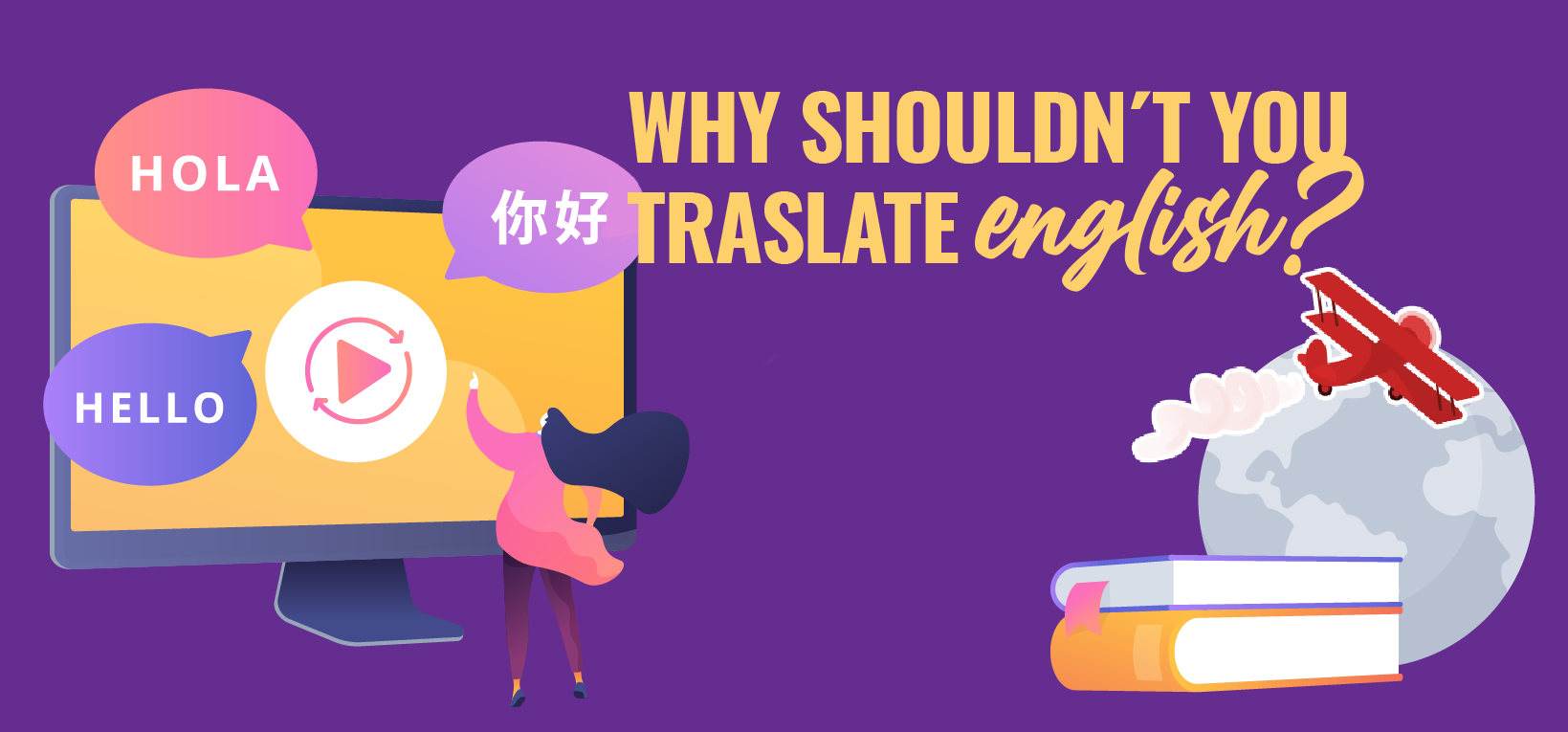Why shouldn’t you translate English?

Translation is an art and science that is not within the reach of a beginner, so you must be careful not to make mistakes.
ÍNDICE DE CONTENIDOS
When learning a language, it is very common to watch subtitled films to get used to hearing the new language, it is good, but all too often we observe that the legend does not literally correspond to the sequence and this puzzles us.
Be careful
Well, yes, it is true that translation can help us to interpret the general context; however, it does not always convey all the information and even less the nuances of the sentences. The fact is that as we know and it happens in almost all languages and perhaps more in English, each word can express several meanings at the same time:
How would you express it in English? Period, dot, point, score, stitch? You need more text, don’t you? So let’s examine the following specific sentence:
- I see your point.
In the event that you had to translate it in the simplest sense that you could, word for word, I would define it “I understand your point.” However, that expression would be “I understand what you mean.”
Sure you would understand its original version but as you can see it does not sound good or natural. The same happens with writing. The same thing happens when you are going to write something in English with Spanish in mind: for example, the expression “storm in a glass of water” is not “storm in a glass of water”, but “storm in a teacup”. (in literal translation, “storm in a cup of tea”, in British English), and “tempest in a teapot” (in literal translation, “storm in a teapot” in American).
You must think in English when…
Currently, it is still difficult, if not impossible for now, that a dictionary or an automatic translator can translate the same as is thought in English and perhaps, in no other language. There is no word-for-word search that can give you mathematical precision to the meaning of certain expressions. For example, if we use the translator it tells us that:
- Hit on someone
It is literally translated as: “hit someone”. Instead, its real definition is: flirting.
Cinema & TV
Needless to say, the translation of movies, series, and titles are questionable. The problem is that the production companies are looking for the most salable efficiency, title, name etc. Thus, marketing by oak is imposed to demonstrate the true meaning in English.
The translation tries to overcome certain obstacles such as the psychology of the public to whom the translation is directed, it is therefore about bringing the public, the people closer to the work, taking care to maintain the essence of the original message.
Speaking a language is not enough to know how to translate
You probably think that having studied a language and having some practice and fluency is enough to know how to translate and nothing is further from the truth. There are many people who speak more than one language, currently, bilingualism abounds in the world. The question is why are they not all translators?
Translation is much more than speaking two or more languages, it is an art and requires many skills from the translator that not all people possess. It is enough to know that the translator has to master the grammar, the style, the vocabulary, the spelling. There are millions of people who do not master these aspects in their native language, even more so in a foreign language.
Qualities of a professional translator
The capital quality of a translator is that when someone reads to him or her they do not realize that it is precisely that, a translation, the one who reads must understand that it is an original text.
The biggest challenge in any translation is to ensure that the reader of the translated text is not aware that they are reading a translation and not an original text. If the above is true, it is indicative that the translation is probably correct in its technical and contextual execution. It is never possible to transfer the total “spirit” of the text from one language to another. There is always a total loss of meaning when translating. A professional translator must be sure, as far as possible, that his translation loses the minimum of its original meaning.
Conclusion
In order to master the art of translation, it is essential that after studying the language, the applicant has to study a degree in translation and interpreting or attend various specialist courses on the subject.
If not, you should know that translation can help you at the beginning of your learning of English; however, you shouldn’t always use it. You have to avoid the obsession with translating everything because you can always end up using literal phrases without any meaning, your goal should be to study hard to understand English well, unless your dream is to become a translation professionally and for this, you must go to a specialized center, or study the degree.


